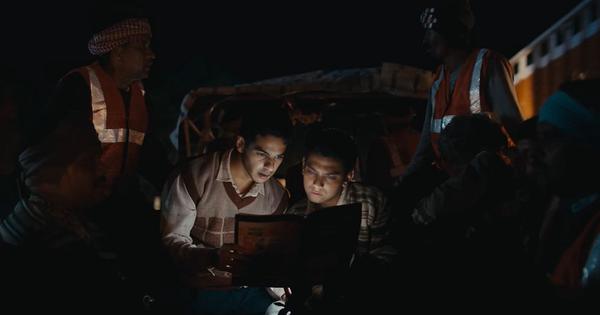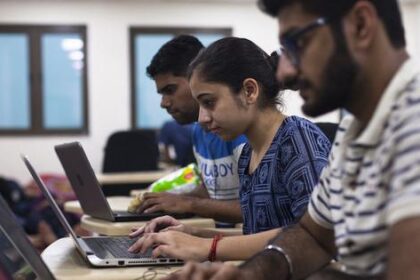Neeraj Ghaywan’s film explores the harsh realities of social identity and aspiration in India.
Neeraj Ghaywan’s film, ‘Homebound’, has been selected to represent India at the Oscars. It features performances by Ishaan Khatter and Vishal Jethwa, who portray two childhood friends from a village in North India. Shoaib and Chandan are eager to join the police force, but their aspirations are thwarted when the recruitment process is indefinitely delayed. Their social backgrounds significantly influence their experiences, setting them apart from others in their pursuit of a better life.
The film reveals the realities of systemic discrimination as Shoaib, a Muslim, and Chandan, a Dalit, navigate a world where even the position of a lowly constable offers more respect and legitimacy than they typically receive. Their friendship, tested by the pressures of their divergent social identities, faces additional strain during the coronavirus pandemic, which serves as a backdrop for the unfolding drama.
‘Homebound’ tackles the unacknowledged complexities of aspiration in a rigidly stratified society. As the two young men engage in the fiercely competitive job market, they confront the harsh truth that their social identities hinder their progress. Chandan is subjected to derogatory remarks suggesting that Dalits benefit from reservations, while Shoaib experiences casual Islamophobia during a cricket match between India and Pakistan. Such bigotry serves as a constant reminder of their marginalized positions within the societal hierarchy.
Ghaywan’s latest work, following his acclaimed debut with ‘Masaan’ in 2015, is inspired by a New York Times report by Basharat Peer. The film sheds light on some of the most troubling aspects of Indian society, illustrating how deeply embedded biases manifest in the context of job hunting. It also highlights that the burden of understanding and empathy often falls on those who are most affected by these injustices.
Specific characters, such as an Islamophobic manager where Shoaib works and a government officer who belittles Chandan’s caste status, symbolize the pervasive rot within the system. The pandemic becomes a powerful reminder of how age-old injustices can resurface in new forms, further complicating the lives of those already struggling.
With a narrative structure reminiscent of neo-realist films from the late 1940s and 1950s, ‘Homebound’ employs rich cinematography by Pratik Shah, characterized by brown hues and deep shadows. Despite its visual appeal, the film occasionally suffers from on-the-nose dialogue and stilted staging. The two halves of the film are distinct, with the pre-pandemic segments showcasing Ghaywan’s vision more effectively.
Amid the poignant scenes that arise from the pandemic, the earlier buildup reveals Ghaywan’s deeper frustrations. The domestic lives of Shoaib and Chandan, along with Chandan’s mother Phool and sister Vaishali, provide critical insights into their struggles. The portrayal of Shoaib and Chandan’s uncommon courage lends the film its raw power and a sense of hope. However, certain characters, such as Janhvi Kapoor’s Sudha, feel somewhat misplaced in the narrative.
While Vishal Jethwa’s performance as Chandan occasionally falters in conveying the character’s angst, Ishaan Khatter delivers a compelling portrayal of Shoaib, embodying controlled rage and maturity. Shalini Vatsa also shines as Phool, delivering some emotionally resonant scenes. Ultimately, ‘Homebound’ is a thought-provoking exploration of empathy and the social dynamics that shape lives in contemporary India.








